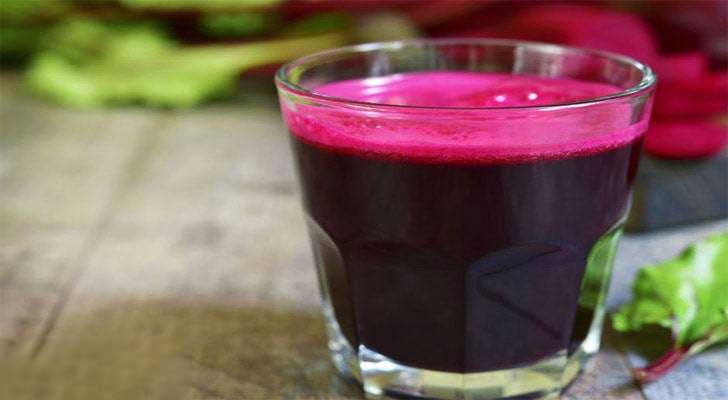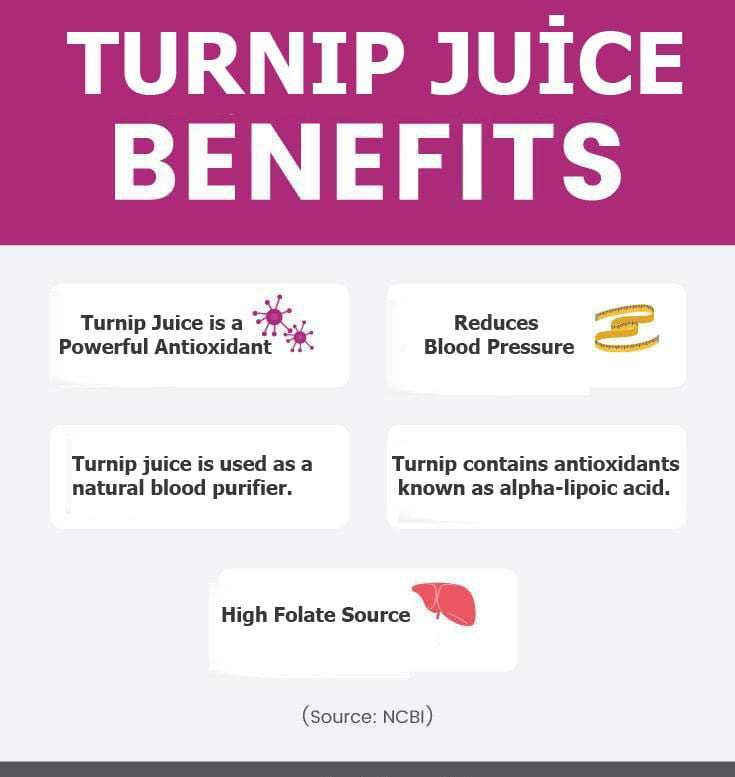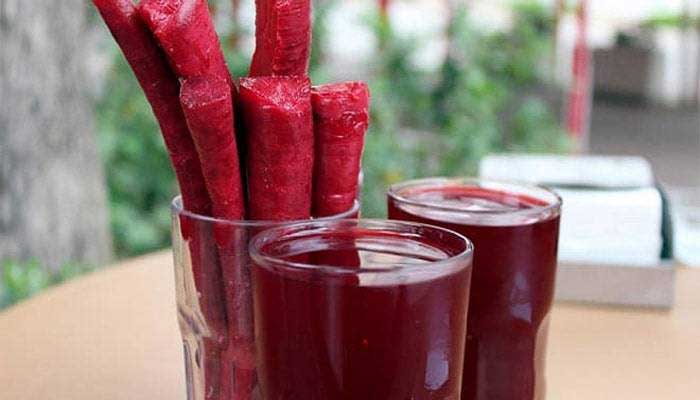What is Turnip Juice?
Are you curious about the benefits of turnip juice? Well, let’s start reading. Turnip is a bulbous, sweet, roasted root vegetable that most people love or hate.
It has been consumed throughout history and is not new, but in recent years has risen especially to the category of superfood. Research shows that drinking turnip juice benefits your health.
Let’s look at the benefits of turnip juice.

Nutritional Values of Turnip Juice
Nitrate is an important compound in turnip juice. In the past, you may have heard that nitrates are present in products such as deli meats, pastrami or other packaged meats of low quality, but they are harmful but types of nitrates in all foods, such as turnips, are very useful.
In the human body, inorganic nitrate is converted to nitric oxide and relaxes and enlarges blood vessels. Like other leafy greens like turnips, cabbage and lettuce take nitrate from soil.
One cup of raw turnips contain the following nutrient content:
- 58 calories.
- Zero oil.
- Zero cholesterol.
- 106 milligrams of sodium.
- 13 grams of carbohydrate.
- 4 grams of dietary fiber.
- 9 grams of sugar.
- 2 grams of protein.
- 148 micrograms of folate. (37% of daily need)
- 6 milligrams of vitamin C. (11% of daily need)
- 0.1 milligrams of vitamin B6. (5% of daily need)
- 0.01 micrograms of thiamine. (3% of daily need)
- 0.1 milligrams of riboflavin. (3% of daily need)
- 0.5 milligrams of niacin. (2% of daily need)
- 0.2 milligrams of pantothenic acid. (2% of daily need)
- 0.4 milligrams of manganese (22% of daily need)
- 442 milligrams of potassium. (13% of daily requirement)
- 31 milligrams of magnesium. (8% of daily need)
- 1 milligram of iron. (6% of daily requirement)
- 54 milligrams of phosphorus. (5% of daily need)
- 0.1 milligrams of copper. (5% of daily requirement)
- 106 milligrams of sodium. (4% of daily need)
- 0.5 milligrams of zinc.(3% of daily requirement)
- 21 milligrams of calcium. (2% of your daily requirement
1. Turnip Juice is a Powerful Antioxidant
Turnip juice is considered to be a promising treatment in various clinical diseases associated with oxidative stress and inflammation.
Its components, especially betalain pigments, show strong antioxidant, anti-cancer, and anti-inflammatory activity.
According to the study, turnip juice can be used as a useful strategy to strengthen internal antioxidant defense forces, which helps protect cellular components from oxidative damage.
Free radical damage occurs when some oxygen molecules are allowed to circulate freely to the body. Oxidative damage is associated with health conditions such as heart disease, cancer, and dementia; therefore, is very important to regularly consume high antioxidant foods.
According to a scientific study conducted in 2015, the most abundant amount of betalain in turnips is the most effective inhibitor of oxidative stress.
It seemed that high antioxidant activity of betaine was due to the ability to recover from highly reactive radicals targeting cell membranes and outstanding electron addition capacity.
This indicates that turnip juice or turnip juice extract is protected against oxidative damage of DNA, lipid and protein structures.

2. Reduces Blood Pressure
Turnip is rich in natural chemicals called nitrates through a chain reaction because your body makes nitrates into nitric oxide, which helps blood circulation and blood pressure.
A 2012 study published in the British Journal of Nutrition found that a turnip had hypotensive effects.
The results of this study suggest that turnip consumption significantly decreases systolic blood pressure and diastolic blood pressure over 24 hours compared to the control group.
Another 2012 study published in the Journal of nutrition, 15 men and 15 women who received 500 grams of turnips and apple juice or placebo.
As a result of the evaluation, was observed that turnips and apple juice lowered systolic blood pressure and were measured six hours after drinking turnips.
This is especially true for men who have a more pronounced drop in blood pressure levels.
In general, researchers concluded that turnip juice would naturally lower blood pressure levels when consumed as part of a normal diet in healthy adults.
3. Provides Detox Benefit
Turnip juice is used as a natural blood purifier. It can detoxify the body and remove heavy metals, toxins, and wastes from blood due to compounds called glutathione for detoxification in the liver and other digestive organs.
Also, the fiber content in turnip juice helps to purify the digestive system of wastes and toxins while regulating healthy and systemic bowel movements.
They are betalains in turnips, which help in the formation of glutathione. It allows the body to neutralize toxins and dissolve in water; they can be thrown out of urine and thrown out of the body.
Turnip juice is also a powerful tool to clean and support liver functions. Keeping liver in optimal function is important because of filters our blood and is responsible for the largest percentage of detoxification in the body.
It works tirelessly to detoxify our blood, to produce bile necessary to digest fat, to break down hormones and to store essential vitamins, minerals and iron.
For those who have impaired liver function, turnip juice makes easier to digest vegetables and is a way of getting easier absorption.
Drinking turnip juice to clear the liver also helps to lower the body’s acid levels and helps to create an easier pH balance.
4. Fights Diabetes
Turnip contains antioxidants known as alpha-lipoic acid, which is shown to reduce glucose levels in patients with diabetes, increase insulin sensitivity and prevent oxidative stress changes.
In a 2008 study published in Nutrition Reviews, alpha-lipoic acid was found to be extremely useful for diabetic neuropathy patients.
The researchers said that alpha-lipoic acid terminates free radicals, increases cytosolic glutathione and vitamin C levels and prevents toxicities associated with loss. This means that turnip juice can reduce oxidative stress.
Turnip juice is high in fiber, so it continues to move toxins and waste properly in the digestive system. If the pancreas does not produce the proper amount of insulin or if cells cannot properly process insulin, it causes diabetes.
High-fiber foods such as turnips help to slow the absorption of glucose, the process of insulin in the body lasts.

5. High Folate Source
Folic acid consumption is important because gives new cells to the body by playing a role in DNA replication and synthesis. A folate deficiency causes anemia (insufficient red blood cells), poor immune function, and poor digestion.
Breast-feeding women, those who have liver disease, those who use drugs for diabetes, alcoholics, and kidney dialysis patients are at risk of folate deficiency.
Foods containing high folic acid, such as beets, lentils, spinach and chickpeas, help to maintain a healthy pregnancy, prevent cancer, and fight for cardiovascular health.
What Are Side Effects Of Turnip Juice?
x After consuming turnip juice of your urine in the past, you may have noticed that it turns into a little pink or red; this is nothing to worry about because is completely normal.
x Turnip contains oxalates that prevent the absorption of calcium by the body, thus allowing the formation of stones in the kidney.
x If you are experiencing kidney stones due to too much calcium, it may be advisable to reduce oxalates in your diet.
